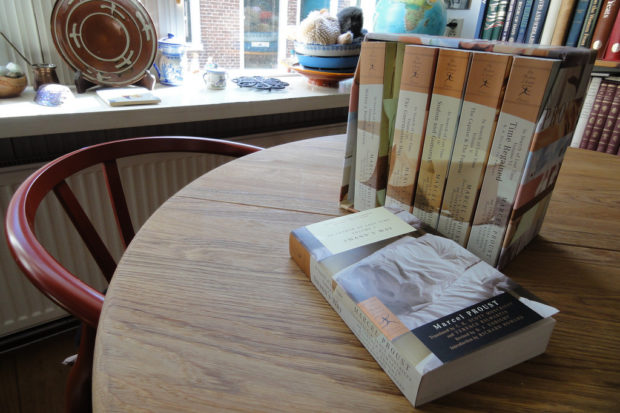
By Alfonso C. Hernandez
In a seminar on Marcel Proust at the University of Paris, Sorbonne, one of the participants asked if the reason why Proust was able to write his masterpiece, Remembrance of Things Past, was because of his homosexuality. The discussion on this question lasted more than two hours of the class that day. Can a man write about women? Can a woman write about men?
Is there a true queer sensitivity that is required to create true-to-life male and female characters? The Barn Theater in Porterville and the Ice House in Visalia have chosen to open their respective seasons with plays by homosexual authors: Oscar Wilde and Tennessee Williams. The question to answer: What is queer in The Importance of Being Earnest and in The Glass Menagerie?
At the Barn Theater, in Wilde’s play directed by Wesley Cox, with a trompe d’oeil wonderful set designed and painted by Mel Gosage, incredibly well acted by a young cast in the leading roles, especially Ginger Piersol and Jack Gutting, we can see that in order to live a satisfying life a man must change his name from Jack to Ernest to be loved and to be able to exist with a double life, one for the country and another for the city. Judyann Hellrung as Lady Bracknell made the most of the lines questioning basic values that shocked Wilde’s society and still sounding witty, ironic and paradoxical.
When Gustave Flaubert was asked about who was the character of Madame Bovary from the novel of the same title, he said, “Madame Bovary, c’est moi” (I am Madame Bovary). Similarly, one could risk saying that several of the characters in The Importance of Being Earnest stand out as the several personalities of Wilde, the playwright.
At the Visalia Ice House, the production of Williams’ The Glass Menagerie reached near professional qualities. Again, the set, the décor, the costumes and the choreography created a suggestive atmosphere that placed us in the American South, showing the reality of that society and the potential of the ideal one with highly emotional and poetic language.
Men cannot exist in a world ruled by the typically castrating wife and mother that we see in the character of Amanda, played rather well by Elizabeth Lamar, despite a too-politically-correct characterization. The father left and Tom, the son, played with total believability by David Payne, must escape, first by leaving the house to go to a bar to drink and to smoke, returning home late, and ultimately by becoming a sailor in order to seek adventures for his future writing. A discerning viewer might be able to see the author in the characters of Tom and Amanda.
In L’Inconnu du lac (The Unknown Man at the Lake), Alain Guiraudi, writer, producer and director, appears in his own film in the scenes at the beach in the lake in his own southern France as one of the men who find a place in the forest to fulfill their sexual desires. Guiraudi seems to say to his audience: This is who I am and this is what male sex is all about, showing it in a variety of settings and sexual practices. This transgressive film might be shown at the Fresno Gay Festival, but in France it is being shown in mainstream theaters.
In this movie, Guiraudi presents the story of an anonymous serial killer, Michel, played by Christophe Paou, and Apollo from the lake, a muscled man with an irresistible masculine presence who offers men his body and practices bareback sex becoming a symbol for the virus HIV. Sex without protection still kills. Anonymous hedonism lives in the lakes and forests in a paradise called Provence amid the sun, the blue water and the music of the wind through the pines in isolated beaches for men only and where Death, in the character of a handsome, sexually charged man, waits naked for his next victim.
Writers do portray themselves in their works and film directors even play roles. But if we did not know their gender or their sexual preference, would one be able to detect whether the creator is a man, a woman or queer? It is truly absurd to think that all the great bisexual and homosexual writers of the past and present write their masterpieces only because of their sexual gender or orientation.
The question on Proust ended by the professor declaring that his homosexuality might have inspired Remembrance of Things Past but that the quality and the art of his writing had nothing to do with his sexual preference. Proust’s art was due to his genius, his intelligence, his imagination and his unique sense of literary style. He emphasized the word style.
*****
Alfonso C. Hernandez is a writer and poet from Three Rivers, Calif. Contact him at alfonsochernandez@hotmail.com.
